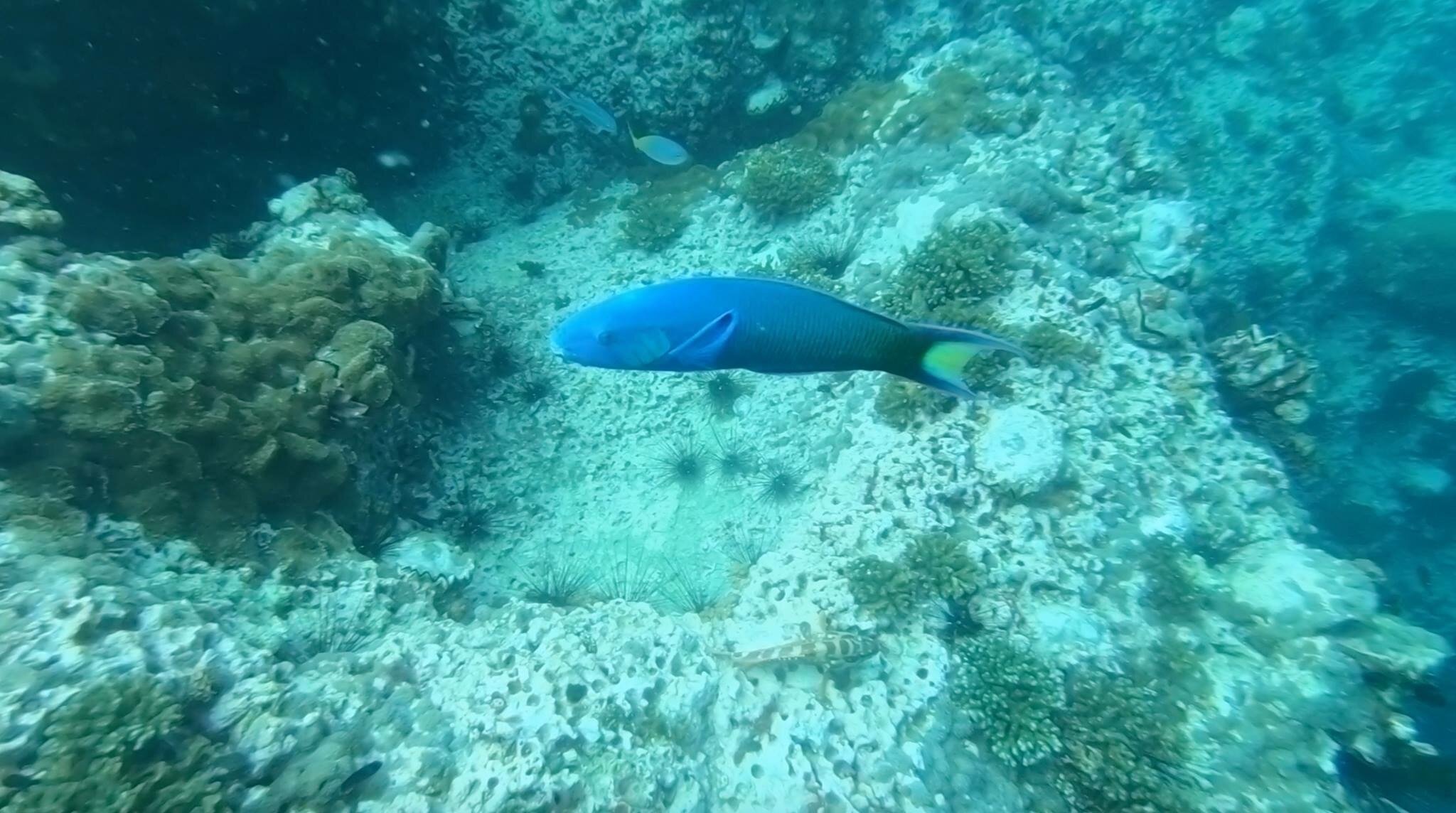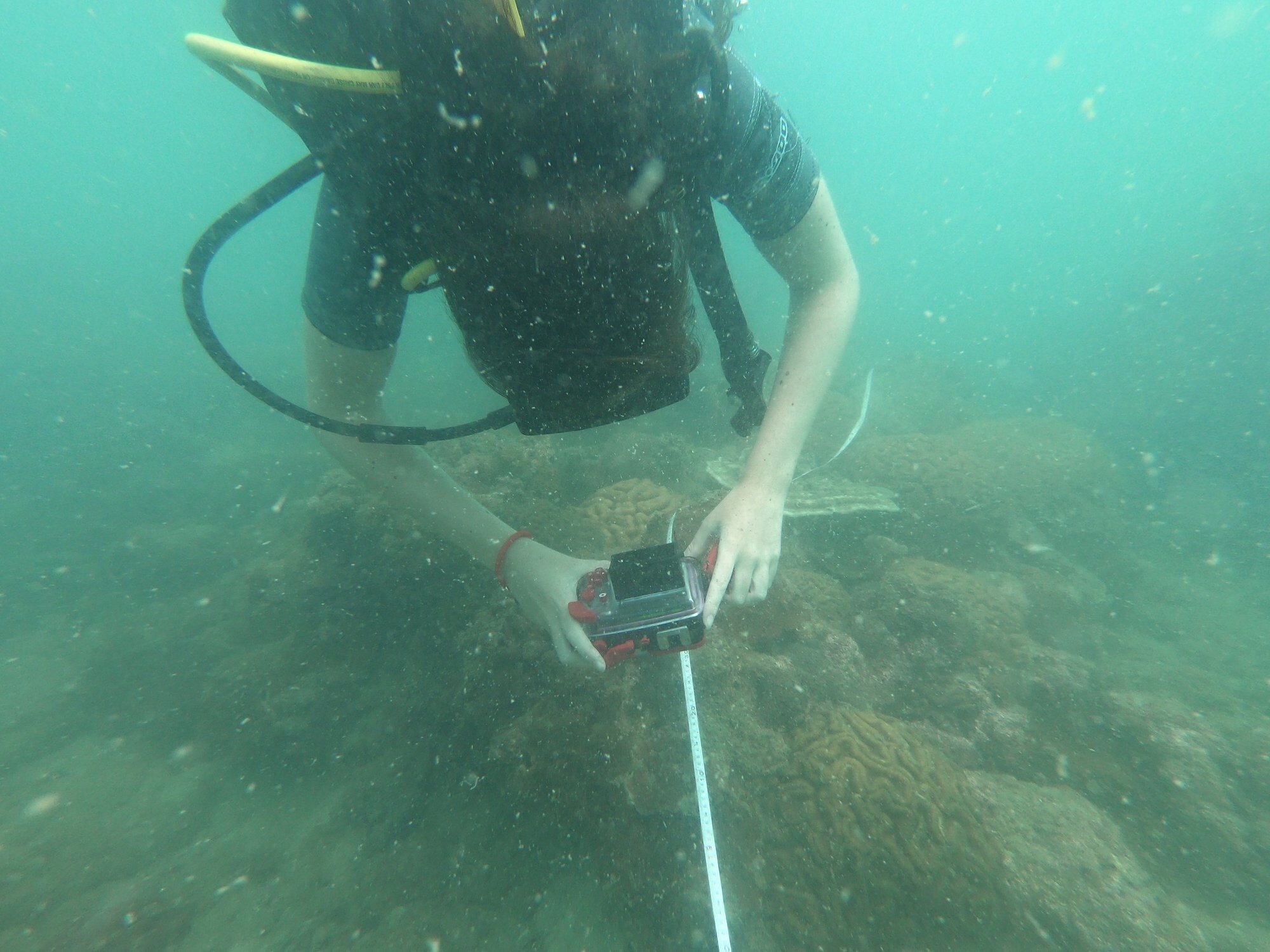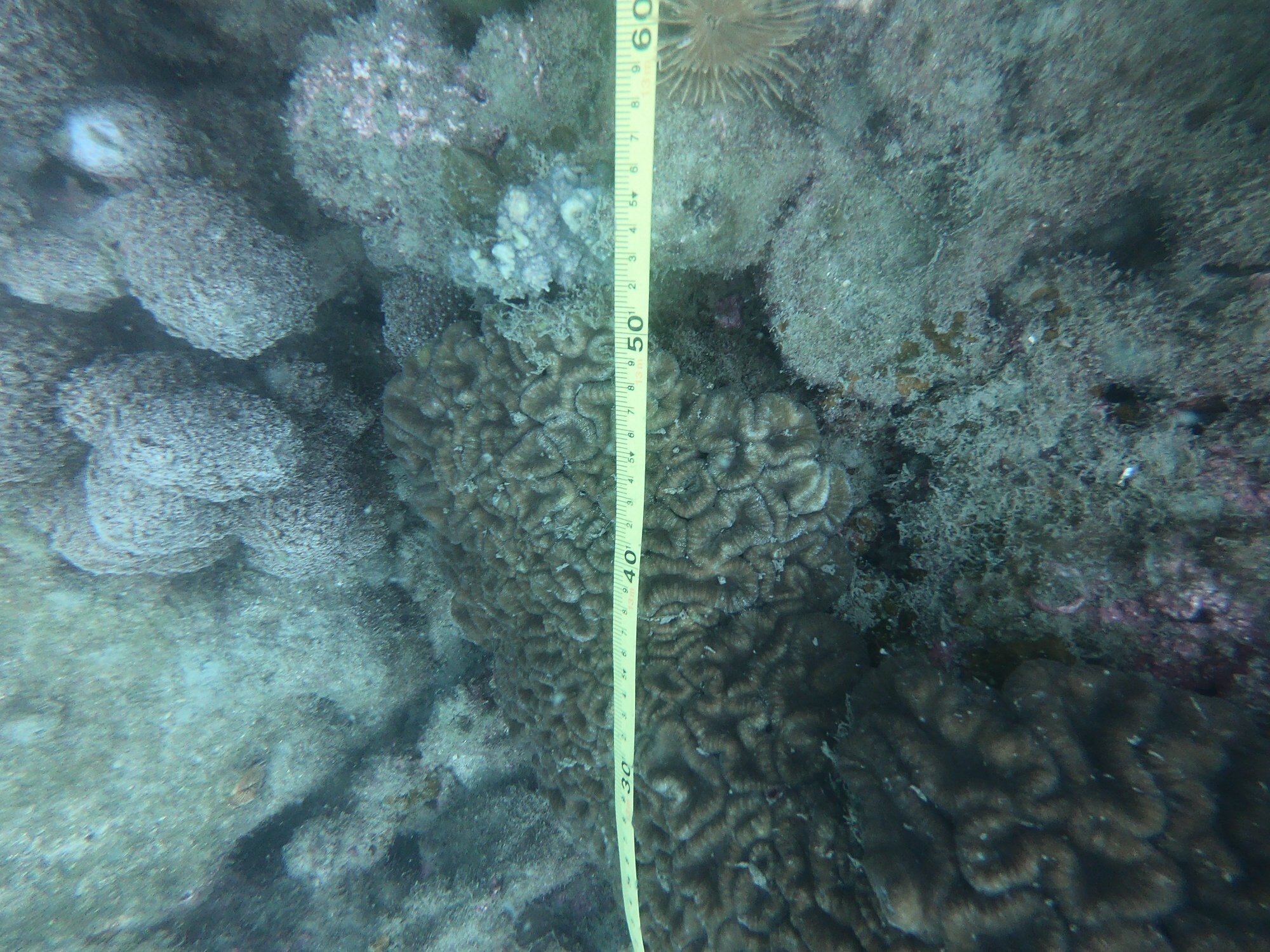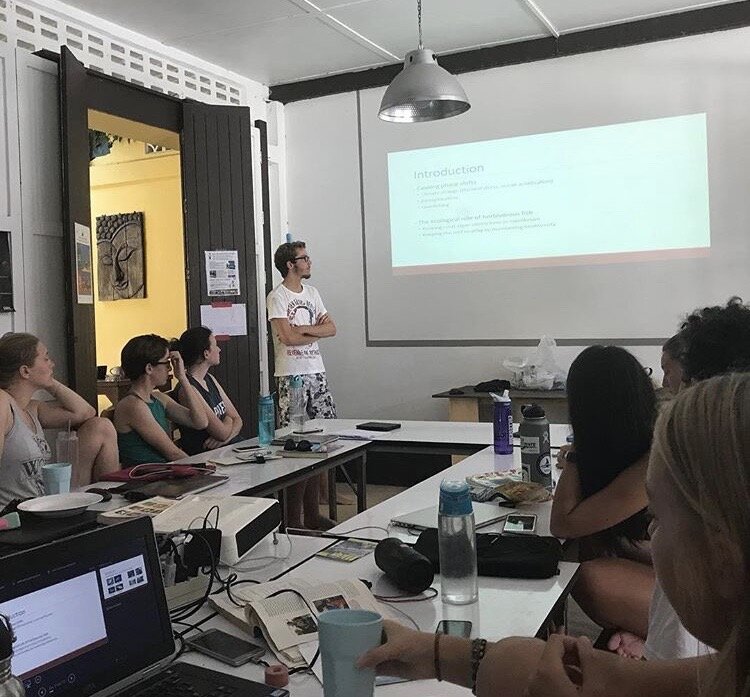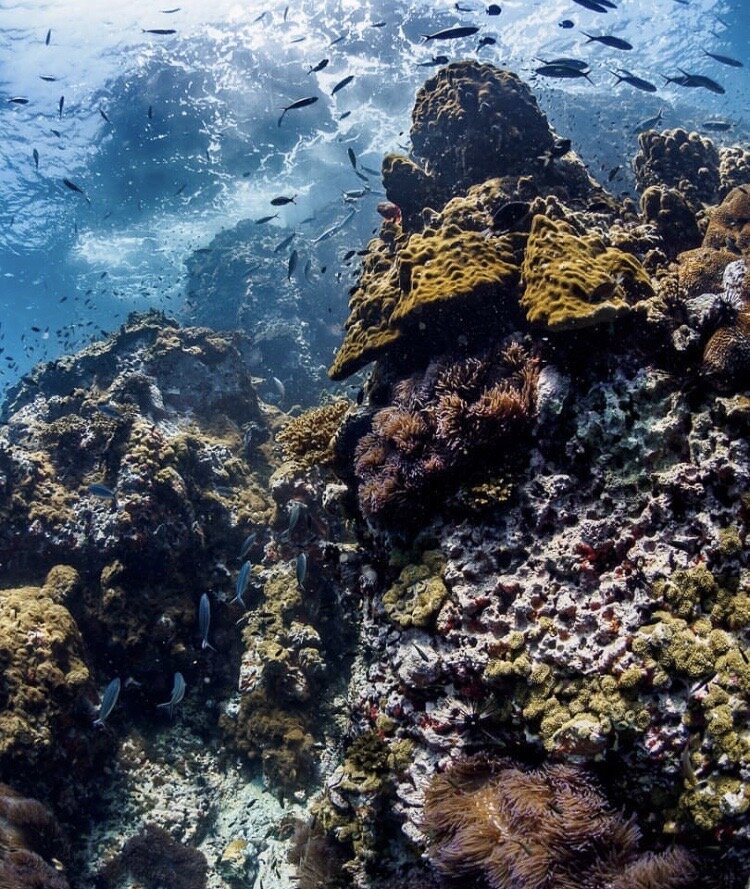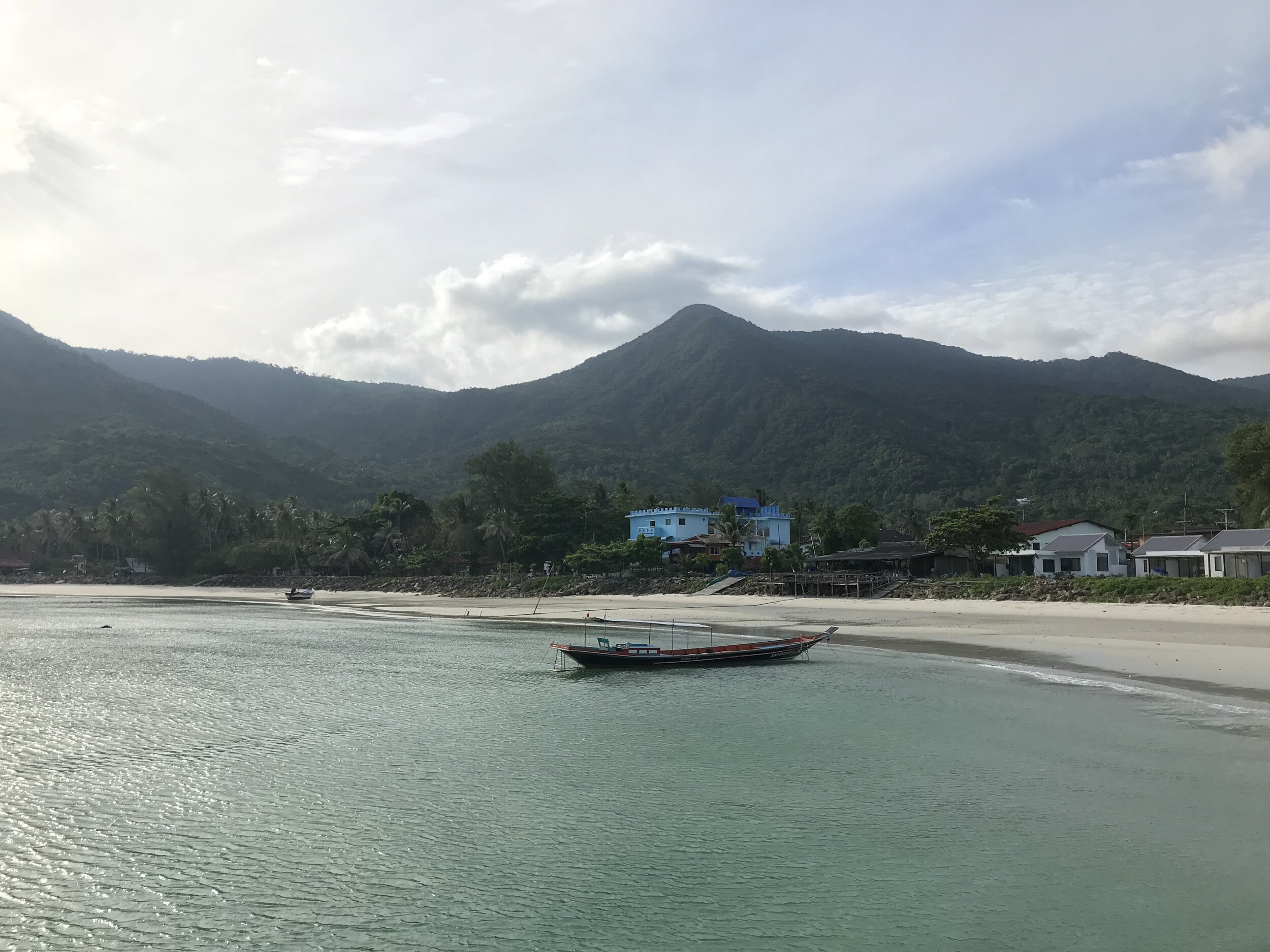Remembering Eike: Not all Hope is Lost
Jennifer Thomson
In memory of Eike Schoenig
This is an additional introduction to the beginning – and is a bit different. I first met Eike just over a year ago last summer in Thailand, and without question he changed my life. I remember diving with him - learning how to conduct coral transect surveys for the first time, and identifying the fish species on these beautiful reefs. My time in Thailand transformed my career path into a love for ocean conservation. Fast forward a year: I am now a divemaster, a master’s student in marine ecology, and the interviewer for that very special guest. We last talked a few days ago – and so it is with unequivocal shock that I woke up today and heard about the sudden passing of Eike Schoenig on the 4th October 2019: CORESEA director, inspirational human, ocean-lover and friend.
Having said that, I still wanted to share this wonderful article that he and myself put together - with no changes made to it. I feel that it is important to remember Eike by his witty, yet eloquently put answers, showing everyone his wonderful personality as it comes across in these interview questions below. So, although this interview has a lighthearted tone, please be aware that this is now published in a context of remembering an amazing individual and celebrating his scientific and personal achievements.
The thoughts, love, and hugs go out to everyone at CORESEA from the The Marine Diaries team during this difficult time.
"Don't Panic. It's the first helpful or intelligible thing anybody's said to me all day.” ― Douglas Adams, The Hitchhiker's Guide to the Galaxy. Photo & Caption: Stefan Follows @diverstef
CORESEA – also known as the Center for Oceanic Research and Conservation | South East Asia – is; as you might’ve guessed, just that! This amazing facility is nestled in the island of Koh Phangan [Thailand], and aims to investigate the surrounding underwater biodiversity in an effort to understand, protect, and conserve it. For myself, CORESEA was the first place I learnt to dive, and I fell in love with the magical reefs, scientific research, and of course amazing individuals. I got back in touch with the director, Eike, and asked him to share his experiences of field research, coral reef biology, and conservation. Enjoy!
Hi Eike! Tell us a bit about yourself.
Hi! I am the director and resident scientist at CORE sea, a small research and conservation organisation in Thailand. About 9 years ago I moved to Thailand with the silly plan to establish a platform for young and budding scientist to: work on projects, get experience, and (if possible) save at least a portion of the sea. We’re still working on the saving bit, but the rest seems to have worked out.
What inspired you to study tropical marine biology?
I initially went to uni to become a park ranger, after a volunteering stint with a small organisation in South Africa. During my courses I realized that not only did everything originate in water, it is also our most precious resource. I was (and still am) absolutely fascinated by the intricate connections and interplays of marine ecosystems. I had been a diver for about 10 years prior to studying, but it had never crossed my mind to be a marine biologist before!
What led you to Thailand, and to start CORESEA specifically?
We visited Thailand as a short holiday to meet a friend, right when the 2010 Global Mass Bleaching Event started. It was the first time I saw coral bleaching in real life, and the fact that nobody in the area appeared to be actively monitoring the situation impacted me quite a lot. We started looking through the research in that area, and found that it was still very under-investigated at the time, but very intriguing due to the uniqueness of the Gulf of Thailand. Further research made opening a facility appear easy (we were hilariously wrong), so we went ahead! The first few years were hard, but worth it. I’d do it again.
Can you describe CORESEA’s mission statement and current research projects?
CORE sea’s mission statement is ‘to understand and protect the marine biodiversity of South East Asia’, which is obviously ludicrous and probably unattainable. But why not try, we thought. It allows us to work in a wide array of fields. One thing that all projects have in common is the possibility of conservation applications, be it management advice or actual techniques.
Due to a new cooperation, we just started an environmental DNA project, which at one point may make it possible to assess the biodiversity of reefs from a simple water sample. With genetics, we are also able to better understand the connectivity of coral systems, and to pin-point areas of importance for protection measures. We are also currently analysing the results of a 9-year study on the coral and reef fish community (the data which our interns collect!). The ecosystems have changed significantly due to factors like climate change-induced bleaching events, overfishing, and sedimentation. We’re hoping to isolate the most important local factors, so the reefs at least have a better chance for the changes ahead with continued warming. Finally, we are also looking into the effect of microplastics on meio-benthos and the coral community, since the methodology has recently become affordable.
It’s pretty diverse, which I think is fitting for the ecosystems here.
Photos from left to right: Monitoring fish. Photo: Kelly Purse, Coral ID surveys! Photo: Jennifer Thomson, Coral transects. Photo: Kelly Purse, Masters students presenting results! Photo: CORESEA.
So, what exactly are corals, and how are they being affected by ocean warming?
The term ‘coral’ describes a variety of marine animals in the phylum Cnidaria, which are usually small polyps with stinging cells. The corals that we are most interested in are ones that can create a calcium skeleton and build giant structures around themselves – called reefs. Most corals create colonies, some of which can be several meters large, and consisting of millions of polyps, which creates enormous natural structures like the Great Barrier Reef. These corals live in symbiosis with microscopic algae called Zooxanthellae, which photosynthesise. It is very good that these two organisms live together, as the coral host receives sugars and amino acids, while the algae symbiont receives CO2 and nutrients.
Elevated temperatures damage Zooxanthellae, and they start to produce reactive oxygen species (ROS) which damage the coral host. As a protective measure, the algae get expelled, leading to the white look of the coral host (hence the term bleaching). The coral has now lost a significant food source and will starve if the situation does not return to normal within a few weeks.
Why are corals necessary for the health of our oceans?
The oceans around the equator are naturally low in nutrients, sometimes likened to the desert. Coral reefs, because of the symbiosis between coral and algae, are the ‘oases’ in this desert as they are very effective primary producers - creating a home and food for a vast amount of marine species. It is estimated that 25% of the marine biodiversity is harboured by coral reefs, and even more are dependent upon them. A large portion of humanity is also dependent on proteins derived from reefs through fisheries. They buffer coasts against storms, produce compounds for medicine, cycle carbon – and are stunning to look at.
Stunning underwater scenes (Photo: Stefan Follows), and above-land scenes too (Photo: Jennifer Thomson)
What have you noticed over time regarding the general levels of coral bleaching in Koh Phangan’s warming ocean since you started your research, and what can we do to combat this?
Bleaching events have become so frequent that a year without incident has become remarkable. The Gulf of Thailand is comparatively shallow and very sensitive to temperature changes in the atmosphere and sea surface temperatures.
There are a few things any individual can do to reduce their impact upon the planet: reducing individual air-travel / meat / dairy / energy consumption to name but a few. You can calculate your footprint on the website Carbon Footprint to get some inspiration where you can personally reduce your impact. It’s worth it. However, the biggest changes can be achieved by voting (if you live in a democracy). The majority of emissions are created by industries and require government interference, as the voluntary measures seem to be too slow. This is obviously not an absolution, as you have significant control over your own footprint. But that’s just my opinion; you should definitively form your own.
How important is science communication in your organisation, both for the education of local people, and to international volunteers? Have you seen any changes in local attitudes towards ocean warming / corals since starting CORESEA?
I think it’s highly important, and I wish we could afford to do more in this respect. We have found that having small booths at festivals / events not purely dedicated to conservation can have a great effect on people that have previously not been in touch with the subject. Schools are also a great way to get more people involved, especially in combination with fun activities. Even a simple microscope on the beach can open the eyes of a curious person. A lot of our interns progress through universities and keep working in the field of marine science and conservation. It’s great to see how much difference these awesome humans can make in their local communities.
On Koh Phangan, we work closely with local fishing communities and other stake holders. A few initiatives have sprung up recently, with a few very impressive results on the island. We’d obviously like to think we have something to do with it, but there is so much energy going around globally for conservation, that it’s hard to tell. And I couldn’t be more enthusiastic about that.
A few awesome humans. Photo: Stefan Follows
What are the next future steps for CORESEA?
Apart from continuing our work on climate change impacts, local drivers, and the hands-on conservation efforts; we’re starting a new project with a large social component. The activities on the island gives us hope that a community agreement can be reached to protect resources by the people that depend on them. For Koh Phangan, this means the fisher-folk and the tourism industry. We’re getting great support from bigger organisations, and would love to establish blue carbon initiatives on the back of this. Apart from that, we’re expanding our collaborations in South East Asia, and who knows, we might be able to open another public field station in the future.
The ocean has changed rapidly in the last couple of decades. Could you leave us with any final words of wisdom concerning ocean conservation?
I wish I could. We are currently in a situation where the bad news regarding our environment is piling up, and solutions appear scarce. Moreover, the available solutions appear to be so difficult for society to implement, that it looks like nothing is being done. People not only seem slow to change; some are actively fighting against it.
I find it important to not lose hope and concentrate on making a positive impact on the small parts of the world that I can reach. Be it students / friends / my own footprint; I find it gives me optimism for the future, and my work. There are some great minds on this planet.
Beautiful Thailand. Photo: Jennifer Thomson
My first AOW dive to 30m in Thailand! Photo: Stefan Follows
I want to say a huge thank you to Eike Schoenig, for agreeing to take part in this interview! You can follow CORESEA here @coresea_official // @CoreSea1, or check out their website for information about their research and conservation internships!


